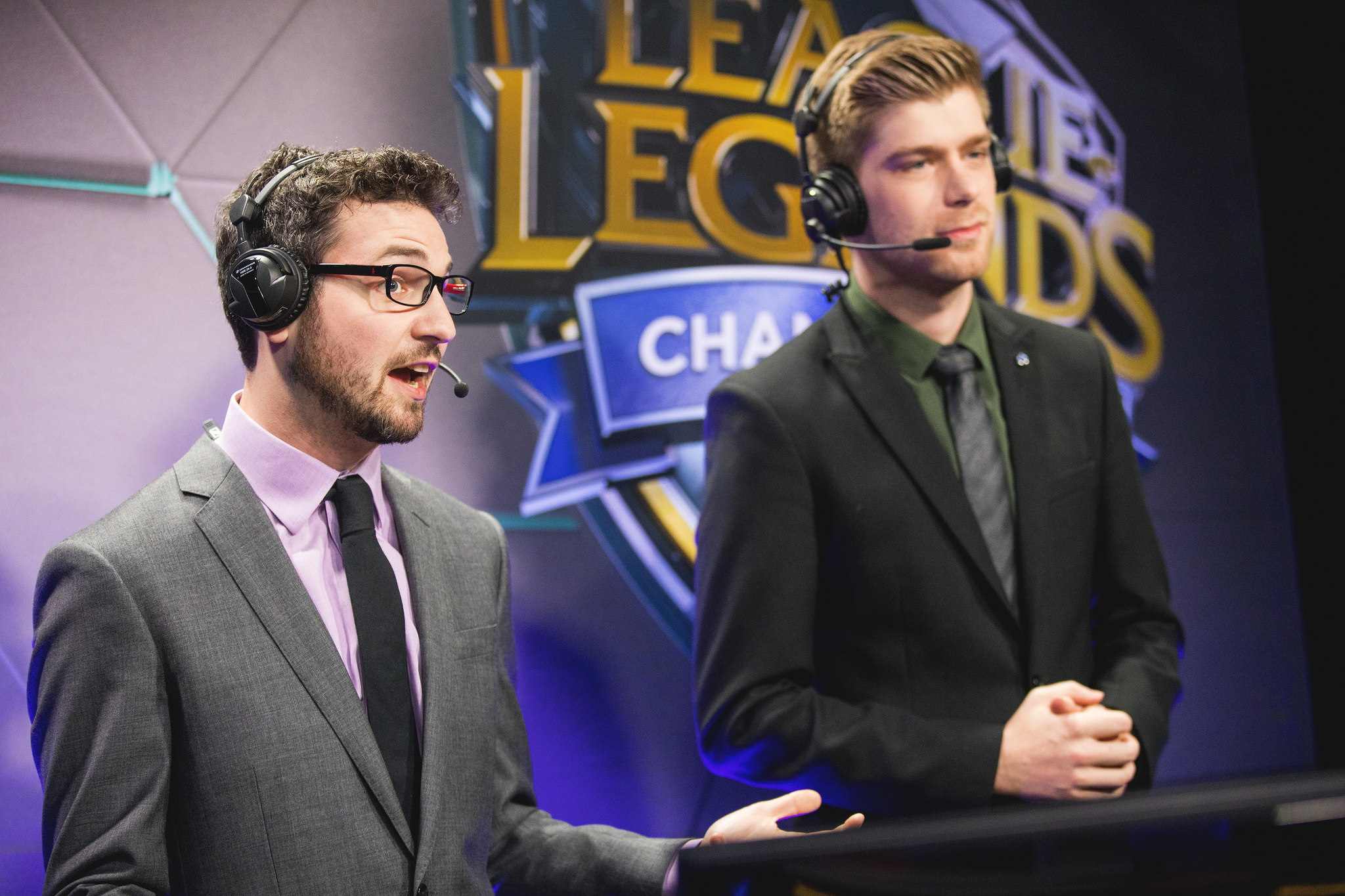Support staff are the secret industry that anchors League of Legends
...but more investment is needed if teams are to thrive.

Every time you watch a match of the LCS, it’s apparent who the stars are: there’s the five guys on each team, and also their coach. The casters are pretty important too, actually, because they’re narrating the match. There’s the referees and technical support stepping in, and... well, okay, there’s a lot of people, and that includes people who don’t show up on cameras or to the studios on game day. In fact, the entire esports industry is reliant on these people. Like a mighty iceberg, there’s the visible tip and then a massive, lurking depth that you don’t see. Also similar to icebergs? The fact that these hidden jobs have the potential to absolutely sink the industry.
Meet the industry
So, who are these hidden people? Well, while you see a coach go out on stage with the players, he’s often just one guy, and there’s an entire infrastructure staff you’re not seeing. There are multiple coaches (positional coaches, life coaches, head coaches), and then there are squads of analysts backing them up. There are sports psychologists and life management people involved too, working with these players to ensure that no one gets scurvy or goes bankrupt as soon as they leave the organization. These people often have managers who, well, manage their daily operations.
This suggested that they lacked the staff who are experts in doing this, and so their dreams died at Worlds 2016
Keep in mind, too, that all of this needs to be funded. Enter content creators and social media people. While their work appears, on the surface, to be fluff, they’re actually curating the lifeblood of an organization. Tweets and posts go out, contests go live, fan engagement increases... and with it comes sponsorships. Andy “Reginald” Dinh, the founder of Team SoloMid, remarked in an interview with Thorin that TSM employed two staff for every player they had.
Is it possible to get by with less? Absolutely. Smaller organizations are forced to mostly funnel funding into their players. Once you get into the big leagues, though, teams can live or die by their management of these resources. It’s not enough to win—you have to translate that into something meaningful. Consider, if you will, the ROX Tigers. They were one of the biggest teams in the world, made top four two years in a row, and had arguably some of the best players in their roles. Not only that, but these guys were genuinely likable. Unfortunately, ROX couldn’t translate this into sponsorships. This suggested that they lacked the staff who are experts in doing this, and so their dreams died at Worlds 2016.

Best of the bunch
So, these people are essential, so they must all be qualified, prepared, and good to go, right? While orgs work hard to find the right people, there’s a massive talent problem. Have you ever sat down with a young relative, eager to talk to them, and asked, “hey, so where do you want to work?” They reply “GameStop”, not because they’re interested in stocking shelves or dealing with customers, but because they like games. You grimace and politely change the subject, because you don’t want to kill their dreams.
Well, the same thing is true of esports. Every position is mobbed by people who are eager to get into the field, but are running off enthusiasm, not experience. In short, applicants tend to be esports fans first, and qualified second. The end result is a constant barrage of noise before any signal can be sorted out.
The end result is that you have people who are living, breathing, and working esports while living on the dime of a spouse or a parent
The other barrier to qualified applicants is that they have to pay their dues first. I am extremely lucky to say that I am currently writing about esports enough (including a staff writer position with an org) that I am paying my bills. It took me a solid year of working in esports to get there, and I still consider myself extremely lucky. If I didn’t have a husband to support me, I would not be working in esports today. The most uncommon part of my story is that I very quickly started getting paying work due to luck and circumstance. Anyone who wants a job needs to go through a similar trial: work for peanuts, and pray it pays off.
The biggest gaming news, reviews and hardware deals
Keep up to date with the most important stories and the best deals, as picked by the PC Gamer team.
This is difficult for writers and content creators, but they actually have a better shot than coaches and analysts. There are fewer analyst and coach positions, and unless you’re working with a big org and living in-house, they tend to pay relatively poorly. The end result is that you have people who are living, breathing, and working esports while living on the dime of a spouse or a parent, hoping that this gamble pays off.

What comes next?
Not all of these jobs are created equal; a content creator and a strategic coach have very little in common. While content creators and writers have the ability to find freelance work or set up shop on YouTube and Patreon, analysts and support staff don’t have these options. That means you have competent analysts, coaches, and support staff who are walking away to find a line of work that puts food on the table. Even low-level support staff who are working with LCS orgs can struggle to make ends meet—what of their peers in Challenger?
Every year, we all like to write thinkpieces about the gap between NA, EU, and China. The answer that is always floated is ‘well, they have more infrastructure’. It’s always exciting to compare big plays and speculate on team drama. “We have to pay more people more money so they do more work”, by comparison, is a little dry. That’s where we’re at, and the weird middling state that the market is in means that these experts we need to compete are difficult to find under a screaming horde of applicants who boast a couple of YouTube videos. There’s no quick fix... but the first step is probably a healthy dose of awareness about just how many people it takes to run a team in esports.

